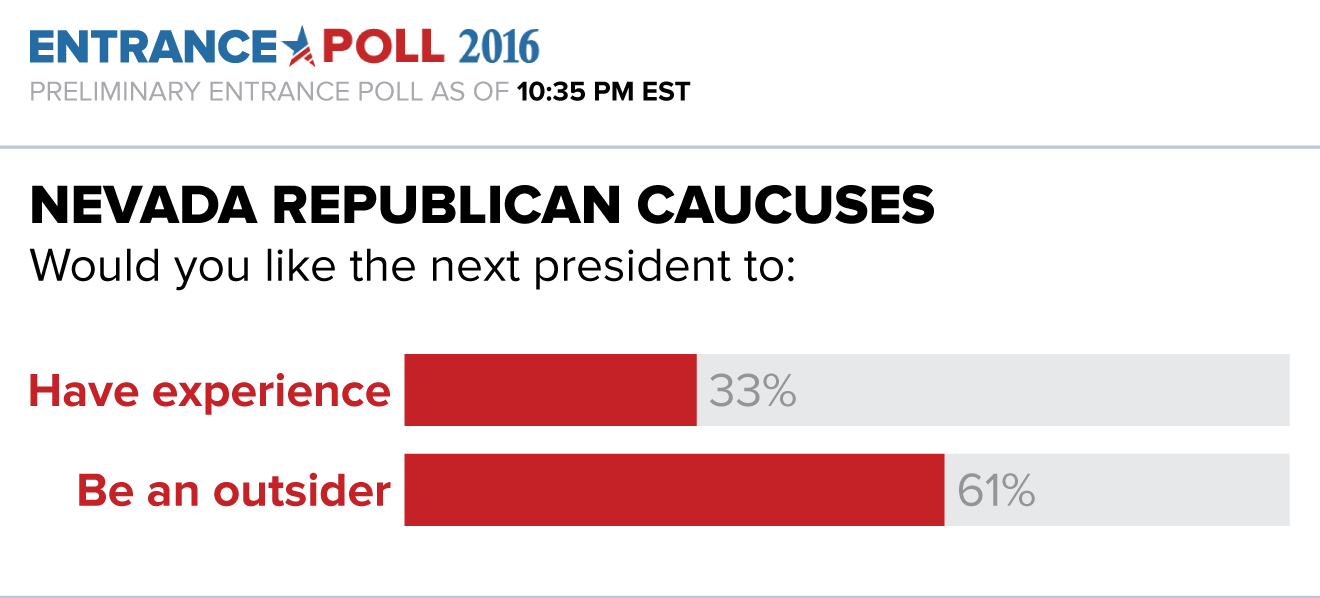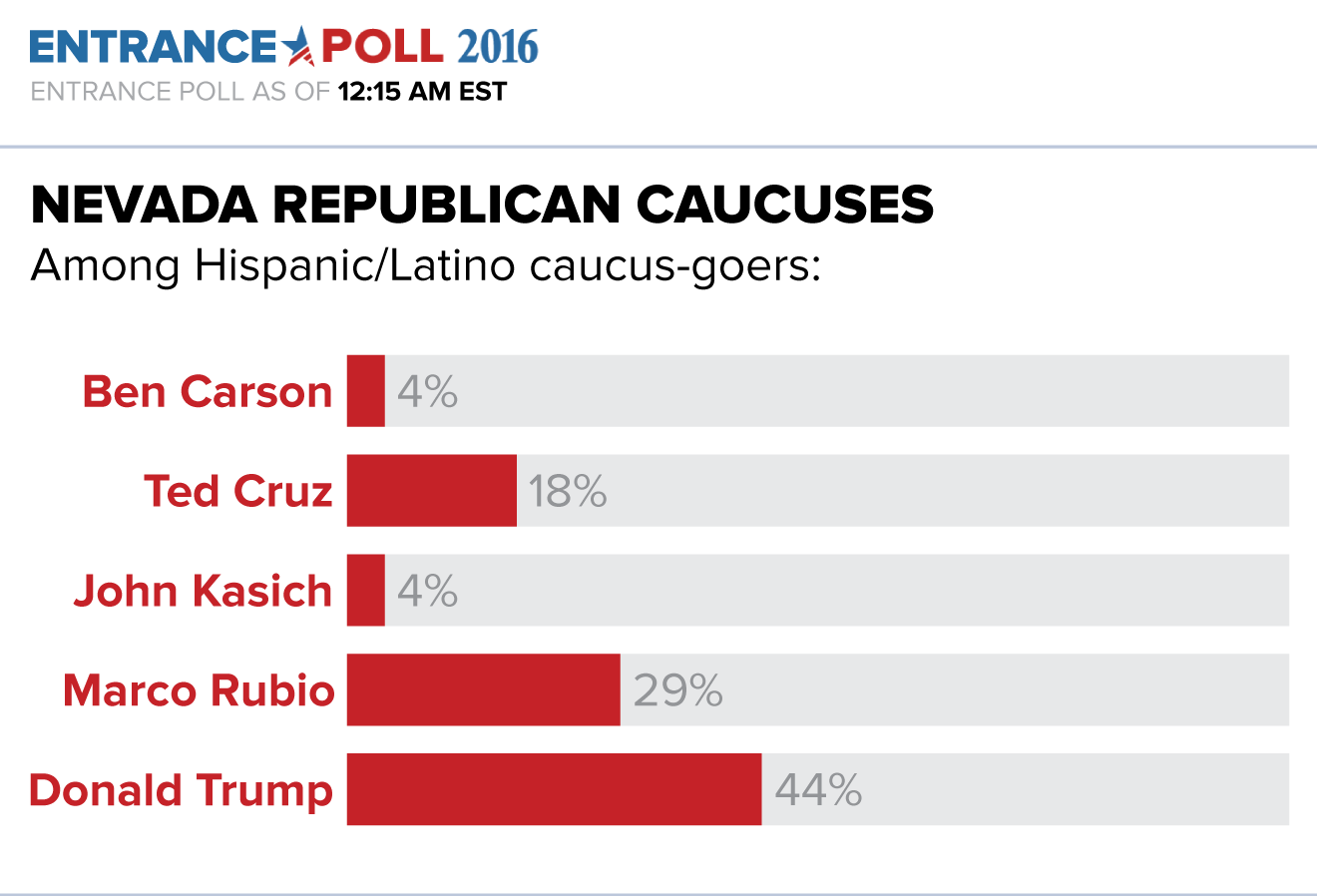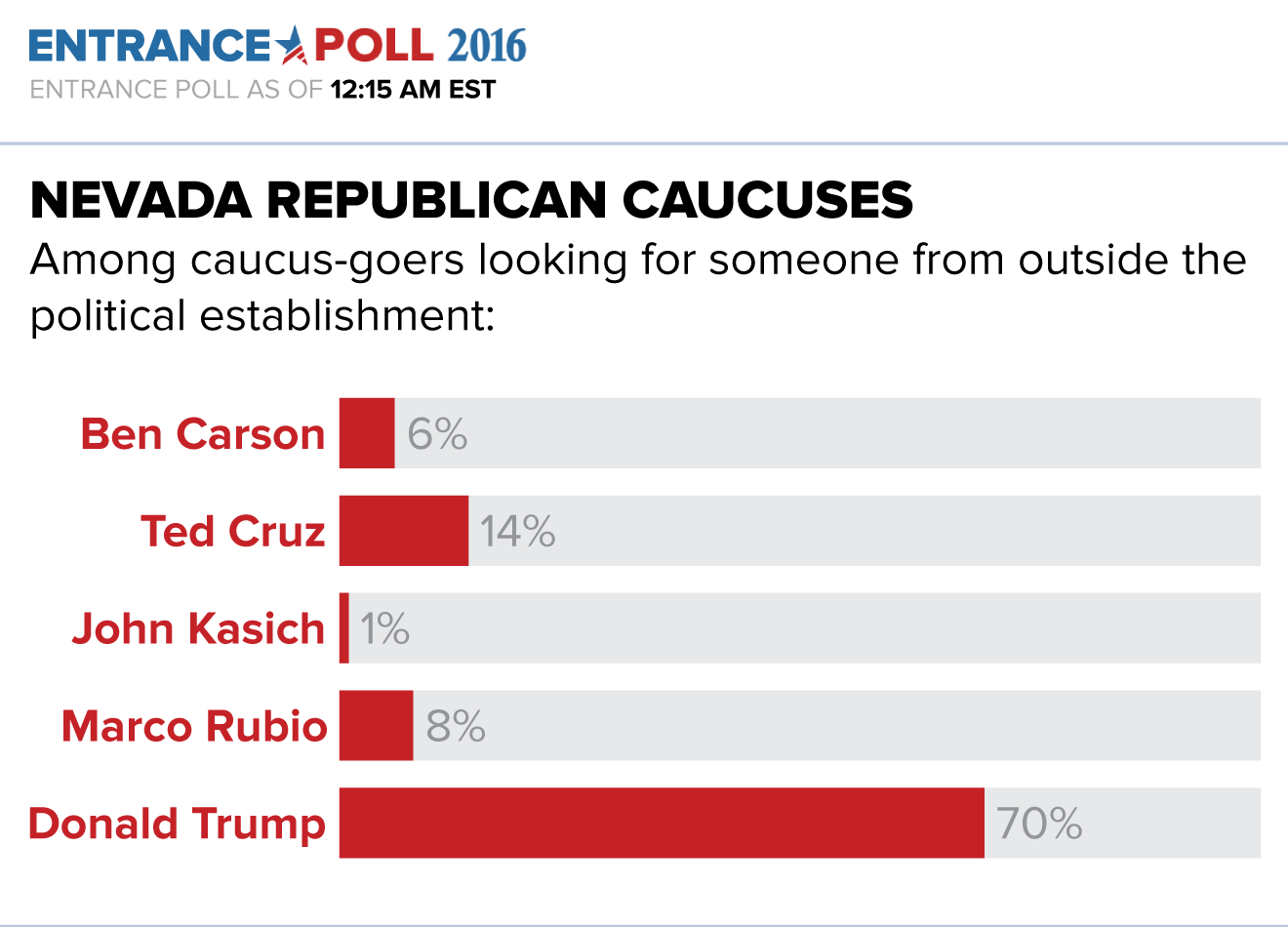Nevada Entrance Poll Analysis: Trump Rides Wave of Anger to Projected Victory
Who turned out in the Republican Nevada caucuses and what motivated their votes?
— -- A new high in desire for an outsider candidate vaulted Donald Trump to a sweeping victory in the Nevada Republican caucuses, completing a three-contest hat trick for the New York billionaire – first New Hampshire, then South Carolina, now Nevada.
Six in 10 caucus-goers in entrance poll results said they were looking for someone from outside the political establishment, compared with about half in previous contests. And a smashing 71 percent of them voted for Trump, a record for his populist campaign among outsider voters.
Six in 10 also described themselves as angry at the way the federal government is working, compared with four in 10 in the previous three states to hold nominating contests this year. Trump won half of these angry voters in Nevada, slightly more than previously. That said, he also easily won voters who were dissatisfied rather than angry – a sign of his broad strength in the state.

Notably, in the first state with meaningful GOP turnout among nonwhites, Trump even won Hispanic caucus-goers, with 45 percent support, as good as Marco Rubio’s and Ted Cruz’s support among Hispanics combined (28 percent and 18 percent, respectively). And, as previously, Trump did best among less-educated voters, winning half of those without a college degree, peaking at 57 percent support among those who haven’t gone beyond high school. Trump’s margin narrowed among more-educated voters, down to a far closer 37-31 percent vs. Rubio among those with a postgraduate degree.

Turnout among evangelicals was up from Nevada caucuses in previous years – 39 percent, vs. 24 percent in 2008 and 28 percent in 2012. As with outsider and angry voters, Trump had his best showing to date among evangelicals, winning four in 10 of their votes, vs. an average of three in 10 in earlier contests.

Cruz, who won evangelicals in Iowa and ran competitively among them in New Hampshire and South Carolina, lost them to Trump in Nevada by 15 percentage points – Trump’s largest margin among evangelicals this year. Cruz, in a serious blow, also failed to beat Rubio among evangelicals.
Somewhat fewer than in the 2012 Nevada caucuses described themselves as “very” conservative – 39 percent now vs. about half four years ago. Trump won 38 percent in this group vs. 34 percent for Cruz – another challenge for Cruz, who won strong conservatives in South Carolina and Iowa alike.
Cruz’s difficulty was reflected in his sharp falloff beyond strong conservatives. Trump was particularly successful among “somewhat” conservatives and moderates alike in Nevada, with Rubio trailing him in both those groups and Cruz third, according to these entrance polls, analyzed for ABC News by